Alphabet Recognition Writing Worksheets for Ages 8-9
7 filtered results
-
From - To
Discover our engaging Alphabet Recognition Writing Worksheets designed for children aged 8-9! These worksheets are tailored to enhance letter recognition and writing skills through fun and interactive activities. Each worksheet provides a mix of exercises that encourage children to identify letters, associate them with words, and practice lowercase and uppercase writing. Ideal for reinforcing classroom learning, our printable resources cater to various learning styles, fostering both creativity and a love for letters. Equip your child with essential literacy skills today with our comprehensive collection of alphabet recognition materials, ensuring they build a strong foundation for future reading and writing success!
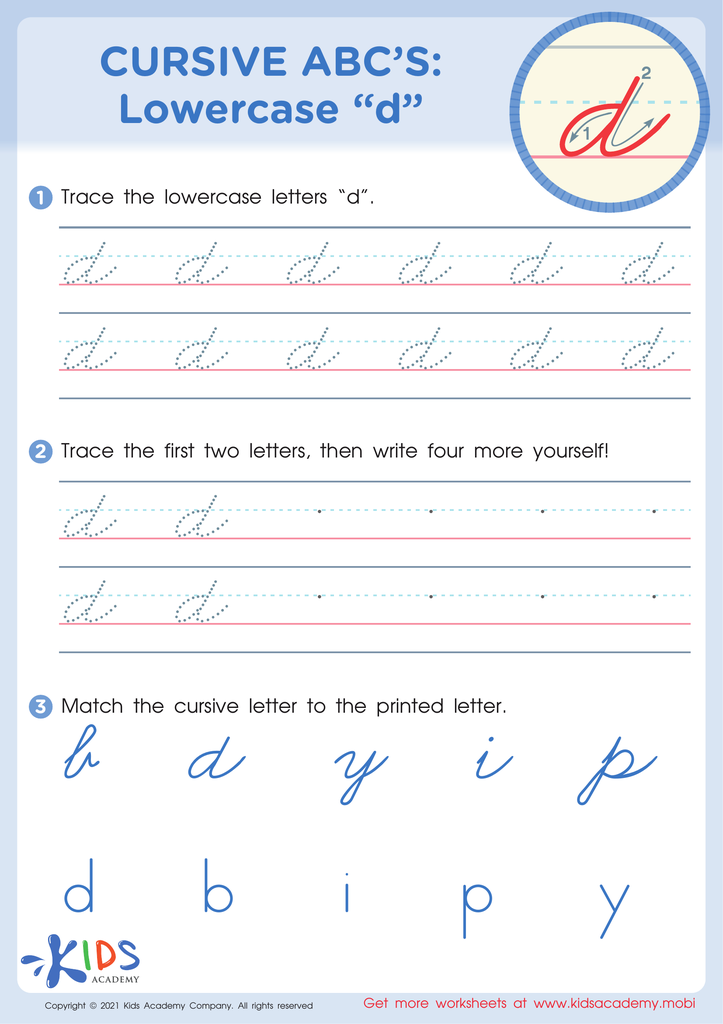

Cursive ABCs: Lowercase d
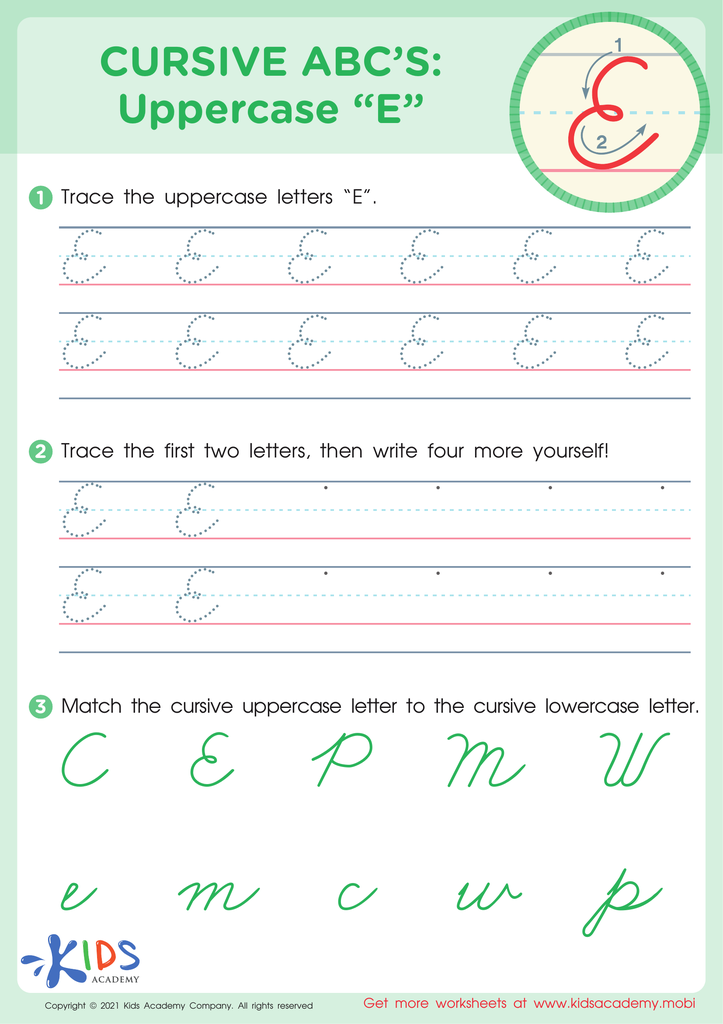

Cursive ABCs: Uppercase E
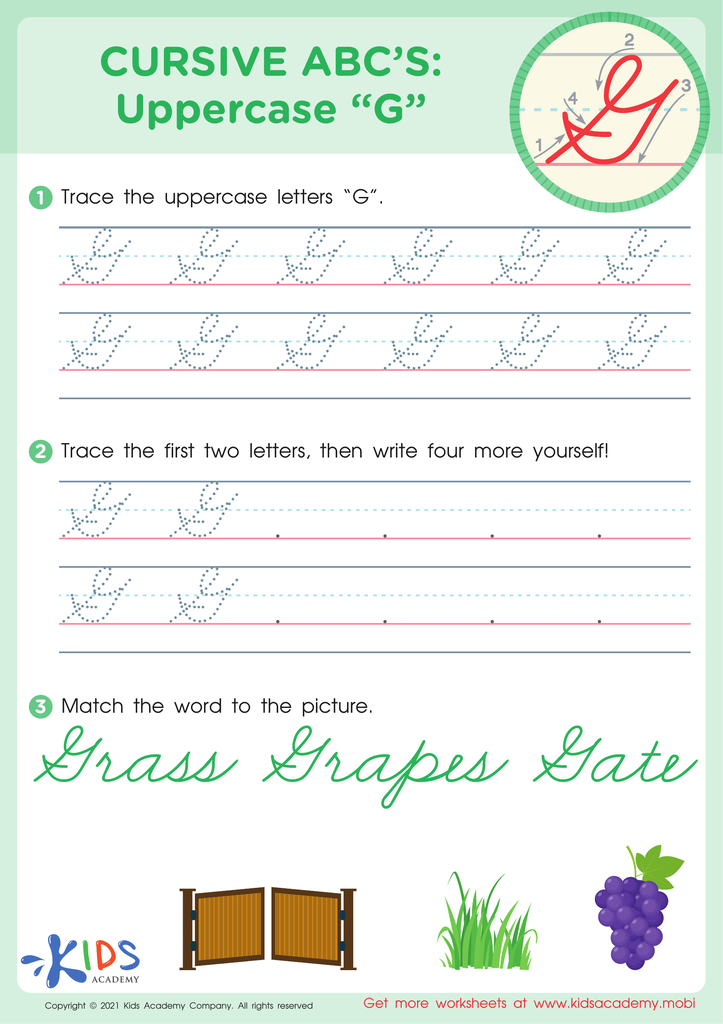

Cursive ABCs: Uppercase G
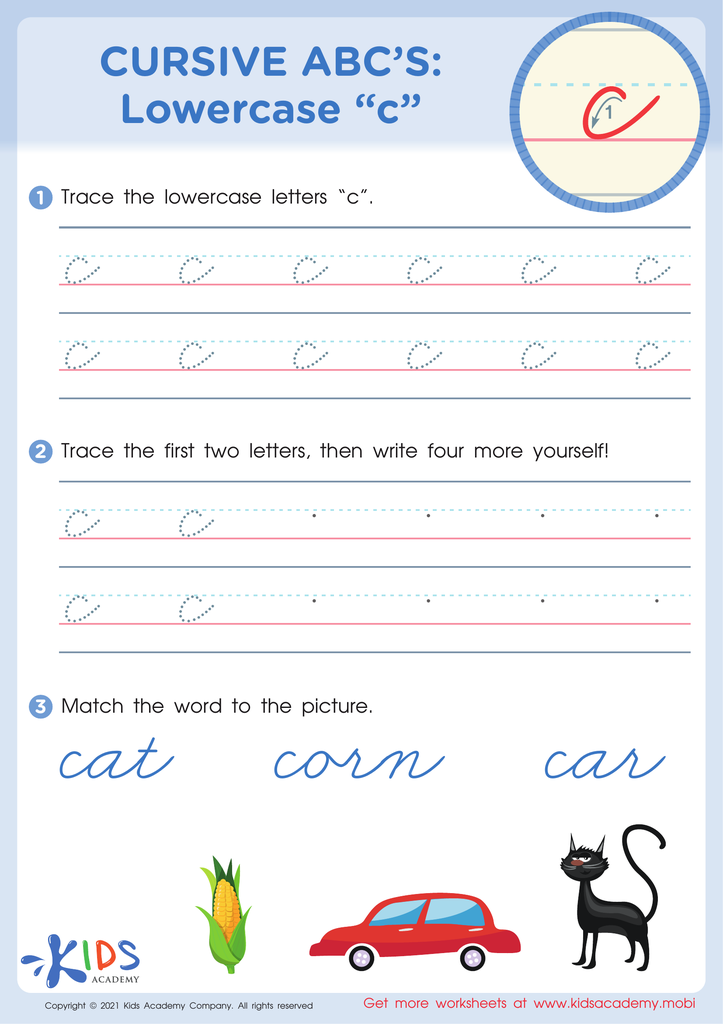

Cursive ABCs: Lowercase c
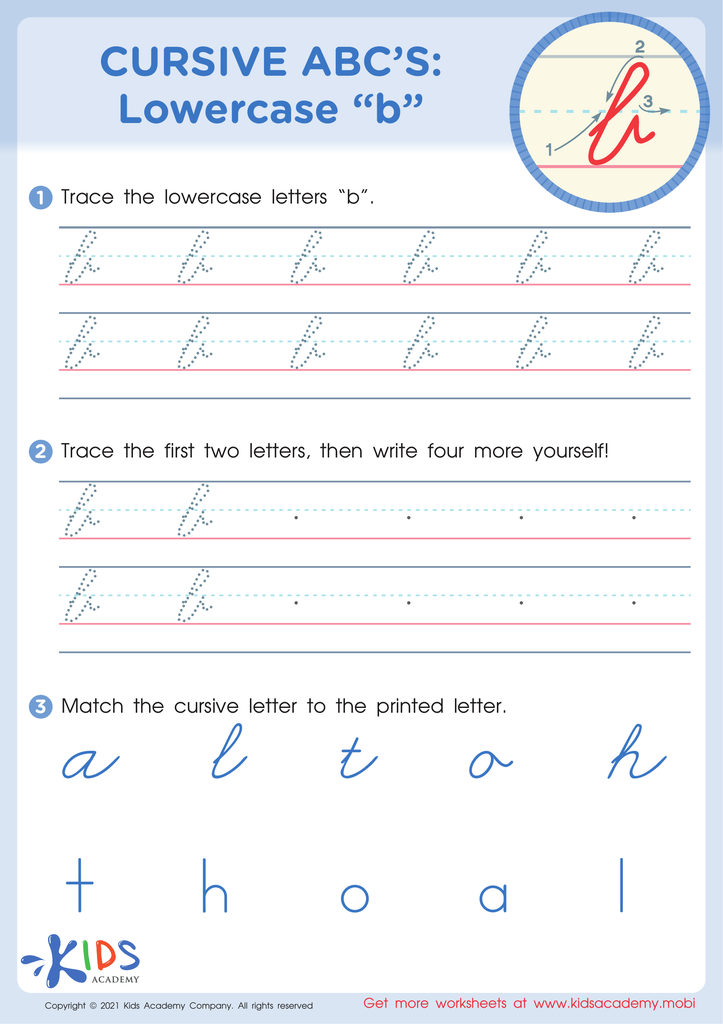

Cursive ABCs: Lowercase b
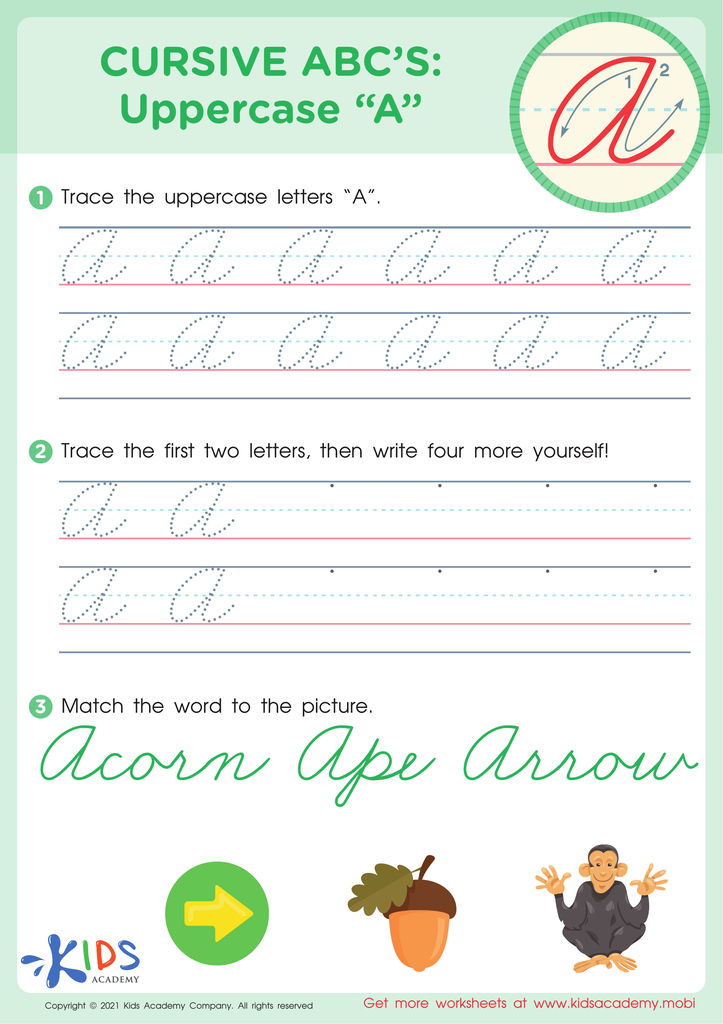

Cursive ABCs: Uppercase A
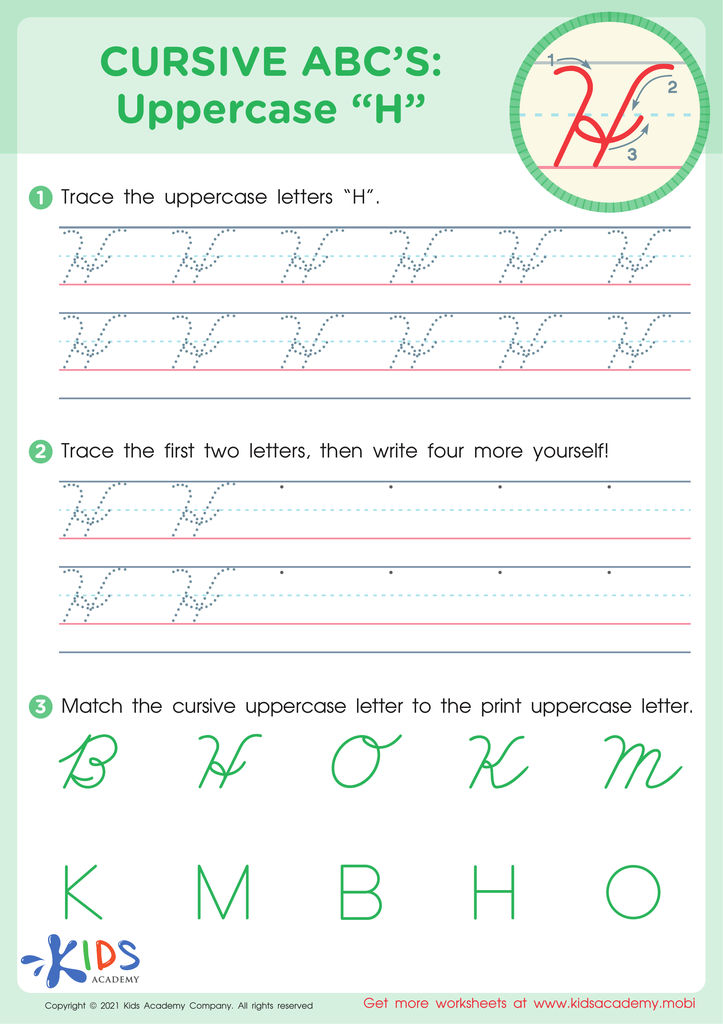

Cursive ABCs: Uppercase H
Alphabet recognition writing is crucial for children aged 8-9, as it plays a fundamental role in their literacy development. At this stage, children transition from basic letter recognition to using those letters to form words and sentences, which is key for effective communication. Mastery of alphabet recognition allows students to read and write more fluently, aiding their comprehension skills and fostering a love for reading.
Parents and teachers should prioritize this skill since it impacts academic performance across all subjects. Children who struggle with letter recognition often find it challenging to keep up with their peers, which can affect self-esteem and motivation. Moreover, this age group begins to refine their writing skills, making clarity in letter formation essential.
Additionally, promoting alphabet recognition enhances cognitive abilities. Students learn to connect sounds with letters, which enhances their phonetic understanding, supporting their ability to decode new words and spell correctly. Activities that focus on letter writing, such as crafts or interactive games, can make learning enjoyable and effective. By emphasizing alphabet recognition, parents and teachers lay a strong foundation for lifelong literacy skills, ensuring children are better equipped for future educational challenges.



















